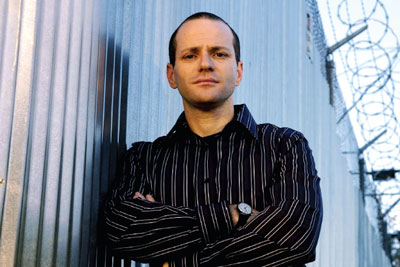Professor provides data to help fight terrorism
As global terrorism has become a greater danger over the past decade, Professor Ami Pedahzur has been at the forefront of studying that danger and developing the data governments need to respond. Central to Pedahzur’s efforts is the T.I.G.E.R. Lab — Terrorists, Insurgents, and Guerrillas in Education and Research. Pedahzur brought the T.I.G.E.R. Lab with him from the University of Haifa in Israel and is now hard at work making it bigger, stronger and better.
“We are going to be the country’s state of the art research lab on terrorism,” Pedahzur says.
Pedahzur established the T.I.G.E.R. Lab with his then-graduate student Arie Perlinger.
Perlinger is now Pedahzur’s main collaborator, and their forthcoming work includes a comprehensive analysis of the global Jihad.
In 1999, Pedahzur designed a data coding system, gathered a group of 20 students, trained them to identify terrorist events and sent them to the microfilm, where they examined old newspapers, made their way through every day in Israeli history and coded events according to 66 variables.
Since then, Pedahzur, Perlinger and their students have focused on developing and broadening this approach. Outside Texas, graduate students at The University of Chicago, Harvard, Princeton and Stanford are using T.I.G.E.R. data.
At Texas, the T.I.G.E.R. Lab serves as a unique resource for students interested in international security.
Pushing Forward Undergraduate Research
Among them is Cassy Dorff who recently graduated from the department with honors and worked through the T.I.G.E.R. Lab to write her senior thesis on political assassinations. It was titled, “Deadly Politics: The Puzzle of Political Assassins.”
Dorff, who was named one of the college’s 2010 Dean’s Distinguished Graduates, is now a graduate student in political science at Duke University. She had the opportunity to present her draft thesis as part of an undergraduate poster session at the 2009 Midwest Political Science Association annual conference in Chicago.
Consistent with the demands of building a leading database, Dorff took great care in defining political assassin and insisted on robust and complete data as a precondition for drawing valid conclusions about assassinations.
Attending the Midwest conference reinforced Dorff’s desire to attend graduate school and study political science. “I think I found my niche,” she says.
The Eye of the TIGER
To become the country’s leading center for the study of terrorism, the lab will continue to be guided by high quality scientific work and strong theory, Pedahzur says. It will work closely with top schola
rs in the field and produce — and make public — the best available data. The lab’s undergraduate and graduate research assistants will write journal articles and assume leadership roles in their field.
Pedahzur notes that he is not interested in giving policymakers thoughts and ideas, or anything approaching policy recipes, just the best data they can find.
“These data will portray a story, explain processes and lead to their own conclusions, and with this wealth and depth of knowledge, they can change the world,” he says. “But we need to get them the data.”
TIGER: The Terrorists, Insurgencies, and Guerrillas in Education and Research lab
Strauss Center Distinguished Scholar Heads Innovative Research Lab
